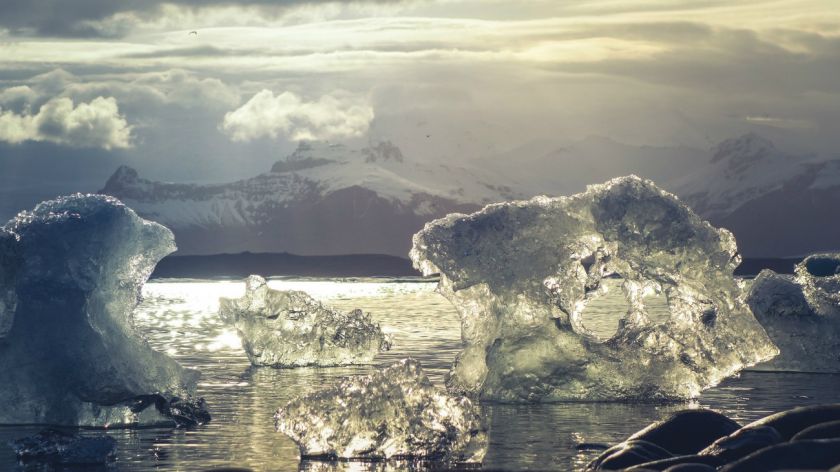The World Meteorological Organization is concerned about the temperature in Antarctica
The WMO said on Friday that verifying the high temperature records in Antarctica "helps to build a weather and climate scenario on one of the last frontiers of the Earth," referring to the 18.3 degrees measured on Thursday last week.
The Antarctic Base Esperanza - where LRA 36 Radio Arcángel San Gabriel is located - registered that Friday at noon a new historical record 18.3 degrees highest mark since temperatura began being measured there in 1961. This temperature surpassed the 17.5 of March 24, 2015, reported the Argentine National Weather Service last week.
The Marambio Base of Argentina, also had the most heat in February since 1971, , with 14.1 degrees Celsius. According to the WMO, "the record for the Antarctic region, that is, for the entire area south of 60 degrees south latitude, is 19.8 degrees centigrade and was taken on Signy Island in January 1982.
And they stressed that this record is a general measure of the situation in Antarctica.
The international organization noted that over the past 50 years "the Antarctic Peninsula (in the extreme northwest near South America) is one of the fastest warming regions on the planet, with an increase of nearly 3 degrees Celsius causing the amount of melted ice to increase six-fold between 1979 and 2017.
For David Holland, director of the Environmental Fluid Dynamics Laboratory at New York University, "the warm waters in this part of the world should serve as a warning about the possible terrible changes in the planet caused by climate change”.

He warned that "should glaciers in Antarctica continue to melt, sea levels will hike in most inhabited parts of the world". The expert added that The apparent disappearance of the Thwaites Glacier "may have a significant impact globally”.
Holland said that “would drain a body of water approximately the size of Britain and may account for four percent of global sea level rise," Measured concretely, some scientists believe this collapse could raise sea levels by nearly one meter.
The discovery was made in the land area of the glacier, the place where the ice makes the transition from resting completely on the bedrock to floating in the ocean.

